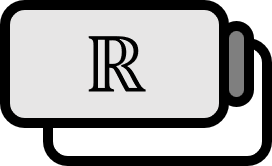Leibniz Integral Rule
Theorem
Let’s assume that $f(x,t)$ and $\dfrac{\partial f}{\partial x}(x,t)$ are consecutive. Then, the following equation holds.
$$ \frac{d}{dx} \int_{a}^b f(x,t)dt = \int_{a}^b\frac{\partial f}{\partial x}(x,t)dt $$
Description
Being able to interchange the order of differentiation and integration is undoubtedly useful.
Besides, there are many theorems or formulas related to differentiation and integration named after Leibniz.
Proof
Since if continuous, then integrable, let’s assume $u$ as follows.
$$ u(x):=\int_{a}^b f(x,t)dt $$
Then, the following is true.
$$ \begin{equation} \begin{aligned} \frac{ u(x+h)-u(x)}{h} &= \frac{\int_{a}^{b} f(x+h,t)dt -\int_{a}^{b}f(x,t)dt}{h} \\ &= \frac{ \int_{a}^{b} \big[f(x+h,t)-f(x,t) \big] dt}{h} \\ &= \int_{a}^{b} \frac{f(x+h,t)-f(x,t)}{h}dt \end{aligned} \end{equation} $$
Moreover, for a fixed $y$, applying the Mean Value Theorem to $f(x,y)$, there exists $c\in[x,x+h]$ that satisfies the following equation.
$$ \frac{f(x+h,t)-f(x,t)}{h}=\frac{\partial f}{\partial x}(c,t) $$
Integrating both sides with respect to $t$, by $(1)$, the following is true.
$$ \frac{u(x+h)-u(x)}{h}=\int_{a}^{b}\frac{\partial f}{\partial x}(c,t) dt $$
Now, for any given $\epsilon >0$, let’s say $\epsilon_{0}=\dfrac{\epsilon}{b-a}$. Since $[x,x+h]\times [a,b]$ is compact and by assumption $\dfrac{\partial f}{\partial x}$ is uniformly continuous on a compact interval, then for sufficiently small $h$, the following is true.
$$ \left| \frac{\partial f}{\partial x}(x+h,t)-\frac{\partial f}{\partial x} (x,t)\right| < \epsilon_{0} $$
Also, since $c\in[x,x+h]$, by the definition of uniform continuity, the following is true.
$$ \left| \frac{\partial f}{\partial x}(c,t)-\frac{\partial f}{\partial x} (x,t)\right| < \epsilon_{0} $$
Now, calculating we obtain the following.
$$ \begin{align*} & \left| \lim \limits_{h\rightarrow 0}\frac{u(x+h,t)-u(x,t)}{h} - \int_{a}^{b} \frac{\partial f}{\partial x}(x,t)dt\right| \\ =&\ \left| \lim \limits_{h\rightarrow 0}\int_{a}^{b}\frac{\partial f}{\partial x}(c,t) dt - \int_{a}^{b} \frac{\partial f}{\partial x}(x,t)dt\right| \\ =&\ \left| \lim \limits_{h \rightarrow 0} \int_{a}^{b}\left[ \frac{\partial f}{\partial x}(c,t)-\frac{\partial f}{\partial x}(x,t) \right] dt\right| \\ =&\ \lim \limits_{h \rightarrow 0}\left| \int_{a}^{b}\left[ \frac{\partial f}{\partial x}(c,t)-\frac{\partial f}{\partial x}(x,t) \right] dt\right| \\ \le& \lim \limits_{h \rightarrow 0} \int_{a}^{b}\left| \frac{\partial f}{\partial x}(c,t)-\frac{\partial f}{\partial x}(x,t) \right| dt \\ \le& \lim \limits_{h \rightarrow 0} \int_{a}^{b} \epsilon_{0}dt \\ =&\ \lim \limits_{h \rightarrow 0} (b-a)\epsilon_{0} \\ =&\ \epsilon \end{align*} $$
This equation holds for any given $\epsilon>0$, hence the following is obtained.
$$ \lim \limits_{h\rightarrow 0} \frac{u(x+h,t)-u(x,t)}{h}=\int_{a}^{b}\frac{\partial f}{\partial x}(x,t)dt $$
Also, since $\displaystyle u(x):=\int_{a}^b f(x,t)dt$, the following is true.
$$ \frac{d}{dx} \int_{a}^b f(x,t)dt = \int_{a}^b\frac{\partial f}{\partial x}(x,t)dt $$
■
